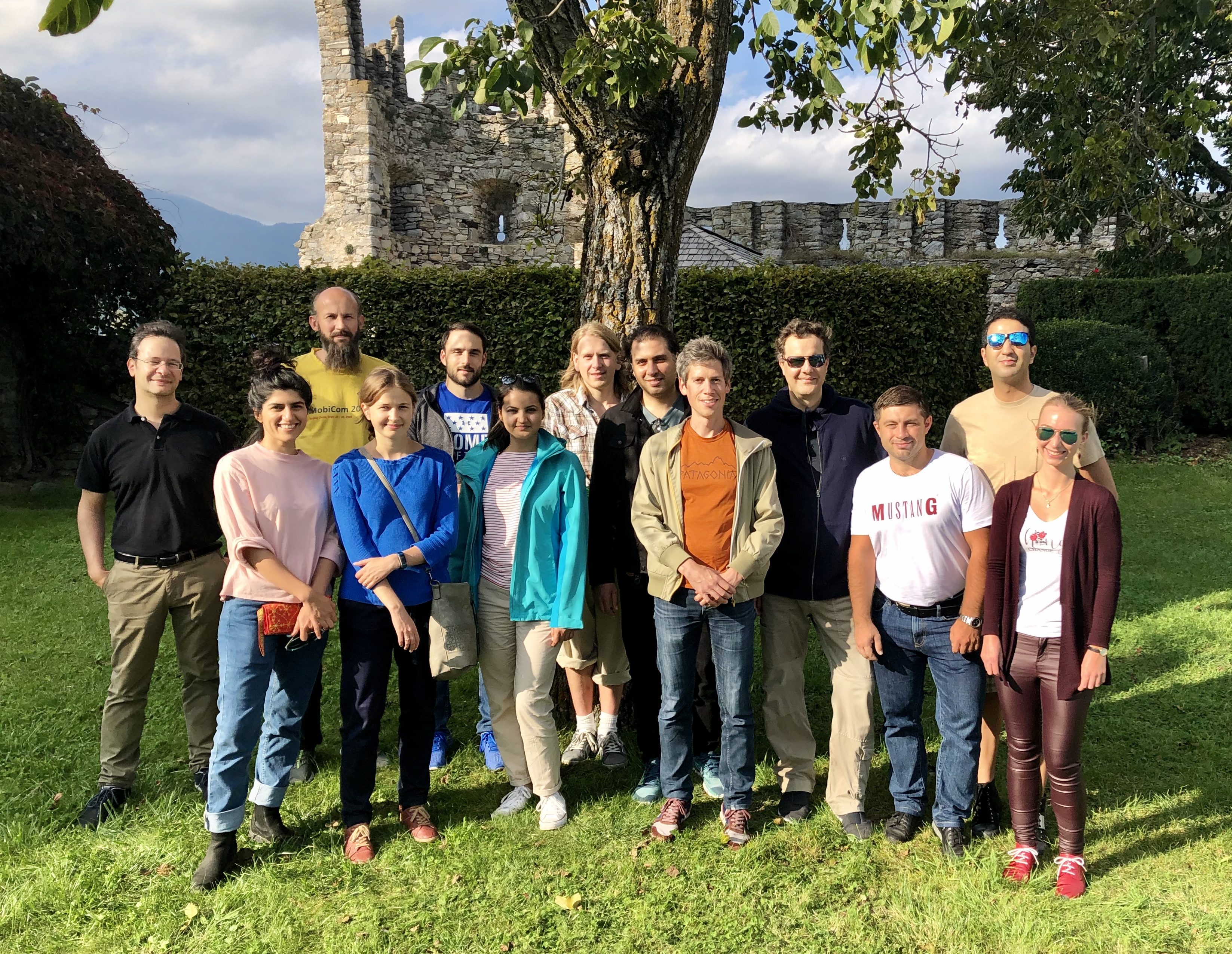The Mobile Systems Group of the University of Klagenfurt held a workshop on scientific writing. They discussed the typical parts of a paper along with specific challenges and practiced them in group work.
Written by Christian Bettstetter. Photo by Kornelia Lienbacher.
It is one of the annual highlights: My team and I leave the offices to spend a three-day retreat to discuss research and teaching topics and get to know each other better. Each year we cover a different focus topic, typically some method or soft skill of general interest. This year was about scientific writing. “Scientific writing is one of the most important tasks of a researcher, but many new PhD students underestimate the efforts required to write a good article. It requires skills that are usually not taught in master programs but need to be acquired in the course of doing a PhD,” was part of my opening statement.
The first half of the workshop discussed the different parts of a publication. We started with the question of how to choose a suitable title. “I once used a very generic title, but now I know that this was a mistake. It should have been more specific,” one of the senior doctoral students reflected. This discussion led us to a list of style elements commonly used in the literature, such as splitting the title into main title and subtitle, starting with an acronym, or using a question for the title. Another very challenging part is the abstract. We practiced writing abstracts with a concrete paper draft, where we summarized the contributions and some results. Another intensively discussed topic was the related work. We concluded that, in many cases, the most important related work should be integrated already into the introduction with a separate related work section following later. Whether or not this section should be placed immediately after the introduction or before the conclusions depends on the paper. It is important to make clear how the current paper differs from state of the art.
The second half was devoted to some typical challenges that arise during the writing process and how to solve them. An important task is to find the right scientific community to present results to. “For my interdisciplinary work, it is sometimes difficult to find the right venue,” said one doctoral student. “This is easier for other work in our group that clearly fits the IEEE Communications Society, to set an example, but there are also conferences and journals that encourage cross-disciplinary topics.” The list of target venues we defined some years ago should be of help here. Another researcher, working on a large European project, said that papers with many authors from different organizations are very challenging and that the different roles and tasks need to be clearly defined at the beginning of the writing process. Online writing tools, such as Overleaf, can be of great help in such situations, but they do not relieve us of the need to manage the writing process actively.
The workshop concluded with a short hike in the historic town of Friesach. We climbed the Petersberg hill, visited a medieval castle construction site, and had coffee and cake in a chocolate manufactory. Back in the office, we still like to think about our days and try to implement our findings. “I’ve been able to take a lot of this with me and will certainly be able to incorporate the ideas and results very well,” stated Jessica Breitegger, a researcher who just started in my team.
Resources used in this workshop
— Writing technical articles and common bugs in writing by H. Schulzrinne
— How to write a great research paper by S. P. Jones (slides, video)
